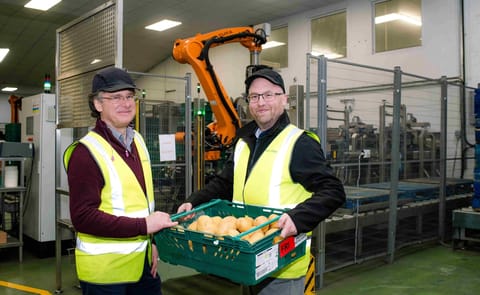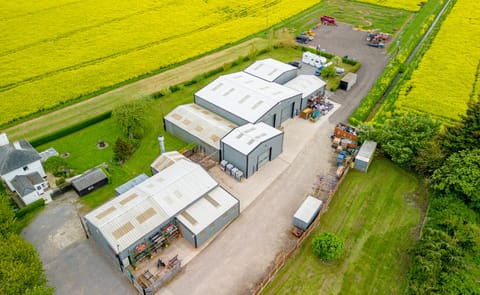David Newton - Timac technical manager
主标签
As fertilizer prices hike, it's a good time to consider biostimulants to make expensive fertiliser stretch as far as possible

With the agricultural industry experiencing a 130 percent increase in fertiliser costs, farmers are being advised to look beyond nitrogen applications to get the most from their soils.
David Newton, Timac technical adviser:
Mr Newton:
David Newton, Timac technical adviser:
"It's been reported that next year the spend on fertiliser could more than double for the average farm, which is likely to result in farms using less artificial fertiliser."Newton advises that one way of doing this is to start introducing biostimulants:
"With this in mind, now is the time to start thinking about how to make fertiliser stretch as far as possible to support crop production."
"If you’ve been on the fence about biostimulants, now is the time to see their true value,” he notes."He explains that many biostimulants are naturally- sourced formulations, which, when applied to crops, stimulate natural processes which benefit nutrient uptake, nutrient efficiency and a plant’s tolerance to stress.
Mr Newton:
"They come in many forms, such as humic and fulvic acids, natural organic acids, or seaweed extract. All support the crop in making the most of the nutrients applied, so when we’re faced with a scenario of increased fertiliser costs, biostimulants come into their own."David Newton mentioned that it is also worth considering the role soil conditioners can play:
"By enabling the crop to combat stress, they act as an insurance policy to protect your assets. Whether it be extreme weather conditioners, or having to apply fertiliser sparingly, the biostimulants allow the crop to fully utilise nutrients available."
"As well as supporting nutrient uptake, we need to ensure crops are drilled into good soil. Soil conditioners help improve poor soils, or to rebuild soils which have been damaged. They improve the soil’s physical, chemical and biological qualities, such as its fertility, bacterial activity, nutrient availability, and can improve the soil mechanics."He adds that as we phase into an era of the Sustainable Farming Incentive (SFI) and Environmental Land Management (ELM) scheme, this approach to nitrogen efficiency will prove beneficial to performance and profit.
"When used alongside biostimulants, the crop can better utilise all nutrients applied."
Like to receive news like this by email? Join and Subscribe!
Get the latest potato industry news straight to your WhatsApp. Join the PotatoPro WhatsApp Community!
Sponsored Content
Sponsored Content
Sponsored Content
Sponsored Content






